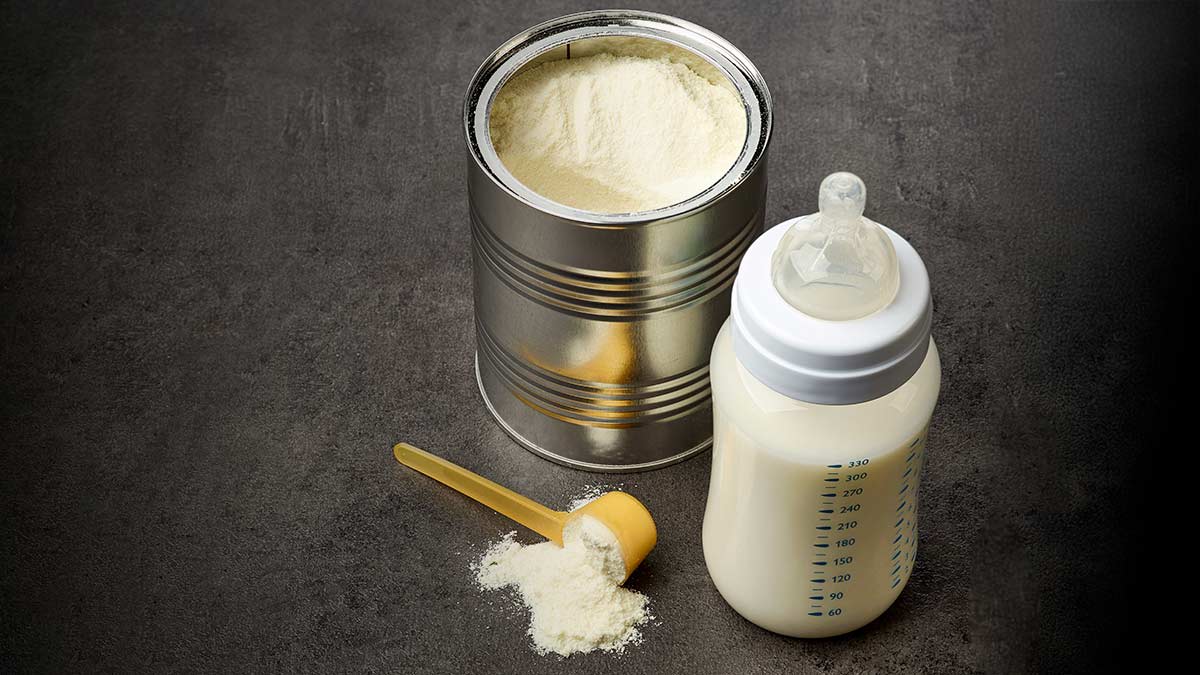The recall occurred after several infants became ill with a foodborne pathogen, cronobacter, after being fed powdered formula manufactured at a Michigan plant owned by Abbott Nutrition. At the time, the plant produced more than 40 percent of the nation’s powdered baby formula under brand names including Similac, Alimentum, and EleCare. Although an investigation by the Food and Drug Administration never identified the source of the bacteria that had been the suspected cause of two babies dying, it did uncover other bacteria and unsafe practices at the Abbott plant. This led to it being shut down for a number of months.
To prevent a future formula shortage, the FDA called on the industry to adopt best practices that protect against bacterial contamination. In 2023 the agency included its recommendations in an open letter to all companies that make infant formula and sent more targeted warning letters to three companies that had safety violations.
The FDA’s letters had specific instructions for manufacturers—for example, to keep water out of dry production areas at all times because moisture could allow pathogens like cronobacter and salmonella to grow. It also strongly recommended that infant formula companies use a testing technology called whole genome sequencing (WGS) when other testing found pathogens in their factories or finished products so that if a baby later got sick, the source could be identified.
But those letters from the FDA were just that—letters. The agency doesn’t currently have the authority to require any changes. While Abbott did enter into a consent decree with the Justice Department that mandated certain improvements, other companies were under no such obligation.
This left Consumer Reports food safety experts and advocates wondering what, specifically, the industry was doing to prevent another formula shortage—and keep babies safe.
In 2024 Brian Ronholm, CR’s director of food policy, wrote to four major infant formula manufacturers that together make up about 90 percent of the market in the U.S. to press for details about what they were doing to mitigate risk from pathogens in their products. Did they keep records of when and where water is found in their facilities? How, and how frequently, did they test their raw materials and products for pathogens? Which ones did they test for? And if any were found, what happened next?
“We wanted to give that FDA call-to-action some teeth,” Ronholm says. He wrote to Abbott, Mead-Johnson, Nestlé, and Perrigo. All wrote back. “Many responses to our questions were encouraging, but some were a bit vague.”
Ronholm and his colleagues were particularly eager to learn whether companies were using WGS to analyze the pathogens that regular screening had picked up in their factories or products. If a baby gets sick from cronobacter or salmonella, it’s imperative that investigators can pinpoint its source. While these pathogens can come from the environment or from a family’s home, if the source is a food product, in CR’s view, it must be recalled and the plant must be shut down.
WGS used to be very expensive and used only rarely, CR experts say, but the technology has advanced to the point where it’s now inexpensive and widely available, and in their opinion should be standard practice in testing formula.
“If you’re using whole genome sequencing, you can tell exactly where the outbreak began–you can exactly match the strain that made someone sick to the strain that’s detected in a product or in a factory,” says Michael Hansen, PhD, a senior scientist at CR. “With the old testing technology, the matching of strains wasn’t that exact, so the source of an outbreak was harder to determine. Once you use WGS, there are many fewer gray areas.”
Abbott, the company whose facility was temporarily shut down in 2022, sent the most detailed information to CR about its sanitary practices and testing procedures. The company said it was continuing to expand its use of WGS.
Perrigo, which makes Dr. Brown’s and several store brands of formula, said it’s using whole genome sequencing for all samples that test positive for pathogens, which CR experts say is encouraging.
Mead Johnson, the parent company of Enfamil, said it uses WGS as a “supplemental” tool for investigating pathogens in Enfamil formula. But CR experts would have liked to hear that it uses WGS as standard procedure for all investigations.
Nestlé, which manufactures Extensive HA and Alfamino formulas, sent the most vague responses to CR’s questions. The company said it tests based on risk assessments but didn’t describe in detail what that entailed.
CR’s experts and other advocates for food safety say they will continue to push for strict safety measures and regular testing in the infant formula industry, both to keep babies safe and to prevent another shortage from ever happening again.
“We need to keep the pressure on,” Ronholm says.
Source link
-
- GRANDPASHABET CANLI CASİNO & BAHİS.6752
- Azərbaycanda Mostbet AZ casino.2502
- Исследование казино: официальный портал и азартные опции
-
- Meilleur Casino en Ligne 2025 – Top 10 des Casinos Fiables.12486
- The Best Online Casino Sites in the UK 2025 Updated Guide.2173
-
